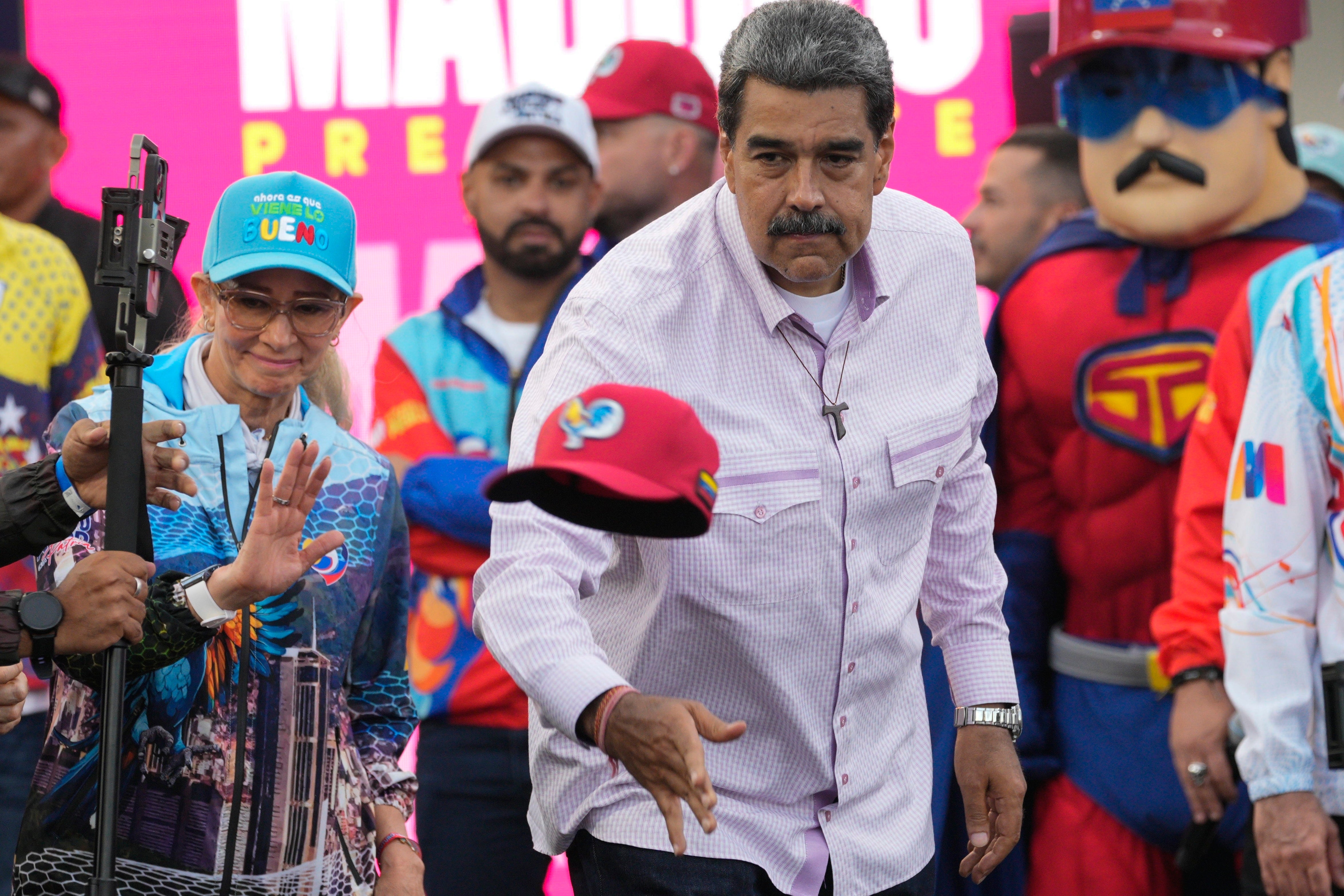US sanctions a Venezuela gang for spreading criminal activity across Latin America
The Biden administration is sanctioning Venezuela’s Tren de Aragua gang as a transnational criminal organization and is offering a $12 million reward for the arrest of the leaders

Your support helps us to tell the story
From reproductive rights to climate change to Big Tech, The Independent is on the ground when the story is developing. Whether it's investigating the financials of Elon Musk's pro-Trump PAC or producing our latest documentary, 'The A Word', which shines a light on the American women fighting for reproductive rights, we know how important it is to parse out the facts from the messaging.
At such a critical moment in US history, we need reporters on the ground. Your donation allows us to keep sending journalists to speak to both sides of the story.
The Independent is trusted by Americans across the entire political spectrum. And unlike many other quality news outlets, we choose not to lock Americans out of our reporting and analysis with paywalls. We believe quality journalism should be available to everyone, paid for by those who can afford it.
Your support makes all the difference.The Biden administration on Thursday sanctioned Venezuela's Tren de Aragua as a transnational criminal organization and offered a $12 million reward for the arrest of its leaders.
The gang is accused of carrying out kidnappings, extortion and other violent crimes on the backs of migrants spreading across Latin America and the United States.
“Tren de Aragua poses a deadly criminal threat across the region,” the U.S. Treasury Department said in a statement, adding that it often preys on vulnerable populations such as migrant women and girls for sex trafficking.
“When victims seek to escape this exploitation, Tren de Aragua members often kill them and publicize their deaths as a threat to others,” the statement added.
The Tren de Aragua traces its origins to more than a decade ago, to an infamously lawless prison in the central state of Aragua where a number of hardened criminals were held. But it has expanded in recent years as millions of desperate Venezuelans fled President Nicolás Maduro's rule and migrated to other parts of Latin America or the U.S.
Authorities in countries such as Colombia, Peru and Ecuador — with large populations of Venezuelan migrants — have accused the group of being behind a spree of violent crimes in a region that has long had some of the highest murder rates in the world.
Initially its focus was exploiting Venezuelan migrants through loan sharking, human trafficking and the smuggling of contraband goods to and from Venezuela.
But as the Venezuelan diaspora has settled more permanently abroad, it has joined — and sometimes clashed — with homegrown criminal syndicates engaged in drug trafficking, extortion of local businesses and murders for hire.
Among the groups the Treasury Department said the gang has teamed up with is Primeiro Comando da Capital, a notorious organized crime group out of Brazil that has also been sanctioned by the U.S.
Earlier this year, prosecutors in Chile blamed the gang, whose name means “train” in Spanish, for the killing of a Venezuelan army official who had sought refuge in that country after partaking in a failed plot to overthrow Maduro.
“The Tren de Aragua is not a vertically integrated criminal structure, but rather a federation of different gangs,” said Jeremy McDermott, the Colombia-based co-director of InSight Crime, which this month published a report on the gang's expansion.
“It has now become a franchise name for Venezuelan criminal structures operating in the region, with weakening coherence now that its home prison base is no more," McDermott said,
The group is led by Hector Guerrero, who was jailed years ago for killing a police officer, according to InSight Crime. Guerrero, better known by his alias El Nino, or Spanish for the “boy," later escaped and then was recaptured in 2013, returning to the prison in Aragua where the criminal enterprise was then headquartered.
He fled prison again more recently, as Venezuelan authorities tried to reassert control over its prison population.
His current whereabouts are unknown but the U.S. State Department, which has offered up to $12 million for his arrest and that of two other gang leaders, said it believes Guerrero and Giovanny San Vicente, another target of the U.S. bounty, are believed to be living in Colombia.
Sen. Marco Rubio, a Florida Republican who co-chairs the Senate Select Committee on Intelligence, has warned that if left unchecked, the Tren de Aragua could also start terrorizing American cities.
Among the nearly 1 million Venezuelan migrants that have crossed into the U.S. in recent years are suspected gang members tied to police shootings, human trafficking and other crimes although there's no evidence that the gang has set up an organizational structure in the U.S., McDermott said.
“Now we are seeing evidence that they have made it into the United States. Every single day, we’re seeing reports from Chicago, South Florida, and New York that these gang members are here,” Rubio said at a Senate hearing in April.
The White House, in a statement on Thursday said the Department of Homeland Security has implemented enhanced screening to vet and better identify known or suspected gang members, including Tren de Aragua members.
___
Follow AP’s coverage of Latin America and the Caribbean at https://apnews.com/hub/latin-america